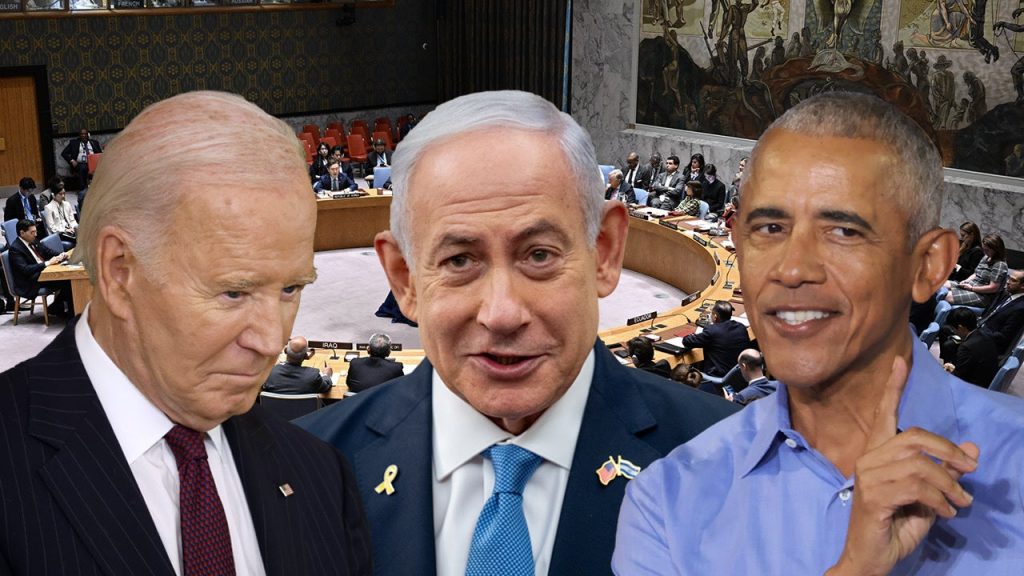The United Nations Security Council’s proposal for a binding resolution to end Israel’s war against Hamas terrorists in Gaza is causing concern that the Biden administration may embrace the measure to send a message to the Netanyahu government. Tensions between Biden and Netanyahu have been high since Israel’s self-defense war started in October 2023. There are speculations that Biden might seek payback against Netanyahu at the U.N., similar to what President Obama did in 2016. The draft resolution, if adopted, could complicate matters as key players like Russia and China could veto any attempts to revoke it.
The leaked version of the proposed resolution does not address the release of more than 100 hostages, including Americans, being held by Hamas. Israel’s ambassador to the U.N., Danny Danon, criticized the resolution for being one-sided and failing to link the call for a cease-fire with the release of hostages. Russia has expressed its support for the resolution and called for a vote without delay. There are fears among supporters of Israel that the Biden administration may use its lame-duck period to punish Israel, similar to what happened in 2016 under President Obama.
There are concerns that the U.S. may attempt to alienate and delegitimize Israel during the transition period. U.S. State Department spokesperson Matthew Miller said that they will make judgments on any resolution brought to the Security Council based on the interests of the United States. The proposed Security Council resolution could have long-lasting implications for the state of Israel and could potentially undermine American sovereignty. Critics argue that the resolution, demanding an unconditional cease-fire without addressing the release of hostages and Hamas rocket fire, could lead to further conflict rather than peace.
The proposed resolution has been supported by 10 non-permanent members of the Security Council, including countries like Algeria, Japan, and Switzerland. Critics argue that the resolution is part of a plan to Trump-proof the Biden administration’s failed agenda and involve the U.N. in efforts to harm Israel. Bayefsky warns that the resolution is not pro-peace and could lead to more war as Hamas has a history of breaking ceasefires. The plan involves U.N. reports and meetings to monitor Israel’s compliance, potentially fueling hate and anti-Semitism globally. It is crucial for the U.S. to shut down such negotiations that target Israel unfairly.
In conclusion, the proposed Security Council resolution on Gaza has raised concerns about the Biden administration’s stance on Israel and potential efforts to punish the Netanyahu government. The resolution, if adopted, could have long-lasting implications and complicate efforts for peace in the region. It is crucial for the U.S. to consider the broader implications of such resolutions on American sovereignty and the stability of the Middle East. Critics argue that the resolution is biased and could lead to further conflict rather than peace. It remains to be seen how the U.S. will act on this proposed resolution and what impact it will have on U.S.-Israel relations.



